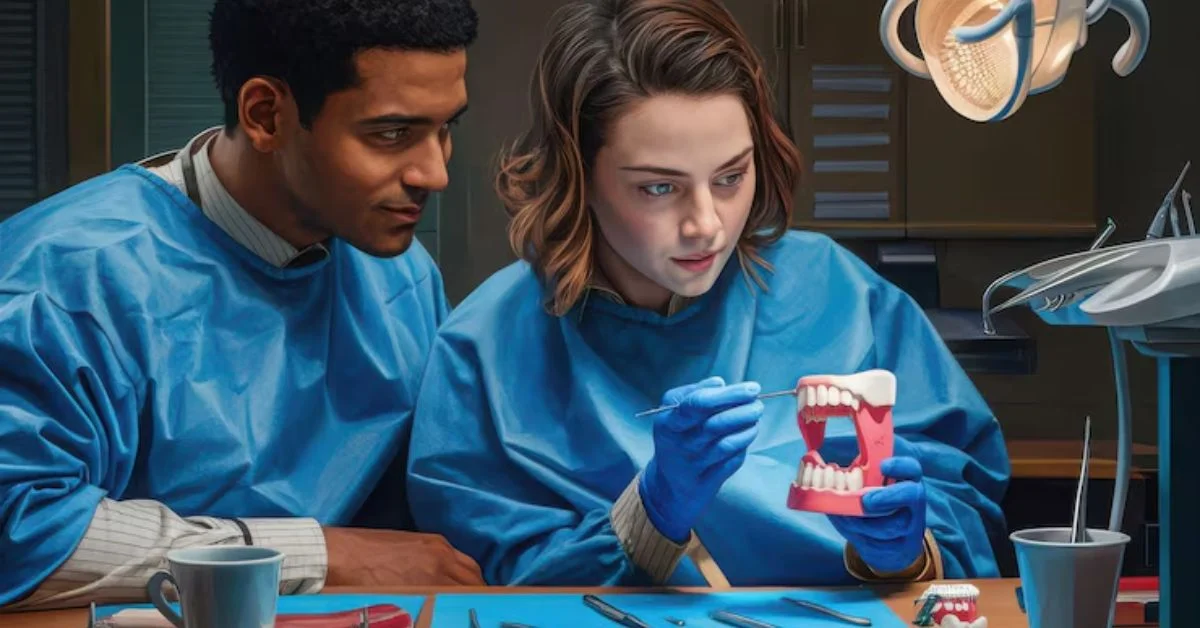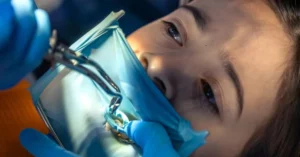A dentist earns a doctoral-level degree after years of rigorous education and clinical training, qualifying them to diagnose and treat conditions of the oral and maxillofacial region. However, because they do not hold a medical doctorate (M.D. or D.O.), many people question whether the title “doctor” truly applies. This article will walk you through the qualifications, scope of practice, training, public perception, and interdisciplinary value of dentists, bringing clarity to a subject often clouded by assumptions.
Understanding the Definition of “Doctor”
The word “doctor” originates from the Latin docere, meaning “to teach.” Historically, it applied to learned scholars across a wide range of disciplines—not just medicine. In modern usage, the term broadly refers to anyone who has earned a doctoral-level degree, such as:
- M.D. – Doctor of Medicine
- D.O. – Doctor of Osteopathic Medicine
- Ph.D. – Doctor of Philosophy
- D.D.S. – Doctor of Dental Surgery
- D.M.D. – Doctor of Medicine in Dentistry
Dentists typically hold a D.D.S. or D.M.D., which are equivalent degrees conferred by different dental schools depending on historical preference. Both programs are doctoral-level professional degrees, qualifying dentist to use the title “Dr.” professionally.
The Educational Journey of a Dentist
To understand why dentists are considered doctors, consider their academic and clinical pathway:
Undergraduate Education
Most dental school applicants complete a four-year bachelor’s degree, often focused on biology, chemistry, or related sciences.
Dental Admission Test (DAT)
Candidates must take the DAT, a rigorous standardized test that evaluates scientific knowledge, reading comprehension, and perceptual ability.
Dental School (4 Years)
Dental school is a full-time, four-year graduate program, divided into:
- Preclinical Years: Classroom and lab work in anatomy, physiology, microbiology, pharmacology, and oral health sciences
- Clinical Years: Supervised patient care, diagnostics, surgery, restorations, prosthodontics, and emergency management
Licensure
Graduates must pass the National Board Dental Examinations (NBDE) and clinical board exams, often regionally administered, to practice.
Optional Residency (1–6 years)
Some dentist choose to pursue specialized training in fields like:
- Orthodontics
- Endodontics
- Periodontics
- Oral and Maxillofacial Surgery (which can require dual M.D. and dental degrees)
Scope of Practice: What Do Dentists Actually Do?
Dentists are primary care providers for oral health, managing not only teeth and gums but also conditions that affect the jaw, facial muscles, and even signs of systemic disease. Their responsibilities include:
- Diagnosing and treating cavities and infections
- Performing root canals, extractions, and minor surgery
- Reconstructing teeth and fitting crowns, bridges, or dentures
- Screening for oral cancers and systemic conditions
- Managing chronic diseases like periodontitis, linked to diabetes and heart disease
- Providing cosmetic procedures such as whitening or reshaping
- Administering local anesthesia and, in some specialties, general sedation
Dentists must understand systemic medicine well enough to recognize how conditions like HIV, diabetes, or cancer manifest in the mouth.
Distinguishing Between Medical Doctors and Dentists
While dentists are doctors, they are not medical doctors. The distinction lies in:
| Category | Medical Doctor (M.D./D.O.) | Dentist (D.D.S./D.M.D.) |
| Focus | Entire body | Oral, dental, and maxillofacial health |
| Degree | M.D. or D.O. | D.D.S. or D.M.D. |
| Schooling | 4-year medical school + residency | 4-year dental school (+ optional residency) |
| Licensure | USMLE or COMLEX | NBDE + regional clinical exams |
| Prescriptive Authority | Broad | Limited to dental-related needs |
Both undergo years of intensive training, patient care, and licensing. Dentists are experts in their domain, just as medical doctors are in theirs.
Public Perception and Cultural Distinctions
Despite their training, dentists are sometimes seen as “lesser doctors” due to several myths:
- Myth: They only deal with teeth
Reality: Dentists handle diseases affecting entire oral structures, head and neck pathology, and even facial aesthetics. - Myth: They don’t save lives
Reality: Dentists regularly detect oral cancers, treat dangerous infections, and prevent systemic complications. - Myth: Dental school is easier
Reality: Dental school demands the same dedication, scientific knowledge, and patient responsibility as medical school.
Public perception is slowly shifting, especially as research underscores the oral-systemic health connection and the complexity of modern dentistry.
Specializations in Dentistry: Where Expertise Deepens
Like medical doctors, dentists can specialize. These roles often require postgraduate training and certification, including:
- Oral and Maxillofacial Surgeons: Trained in surgical procedures, some earn dual M.D./D.D.S. degrees
- Periodontists: Experts in gum health and implantology
- Endodontists: Specialists in root canal therapy and internal tooth structures
- Orthodontists: Correct dental alignment and facial symmetry
- Pediatric Dentists: Focus on child-specific oral care
- Prosthodontists: Reconstruct complex dental function and aesthetics
These specialists are often involved in hospital-based care, emergency treatment, and interdisciplinary medical teams—further reinforcing their clinical authority.
The Legal and Ethical Right to Use “Doctor”
The right to use the title “Doctor” is granted based on academic achievement—not limited to medicine. Dentists, like pharmacists, veterinarians, optometrists, and Ph.D. holders, are legally entitled to the prefix “Dr.” as part of their earned credentials.
Professional guidelines encourage transparency:
- A dentist introducing themselves as “Dr. Jane Smith, D.D.S.” is both accurate and responsible
- Ethical use prevents confusion by specifying the field of expertise
This balance preserves both professional recognition and public clarity.
Interprofessional Collaboration: Dentists in the Healthcare Ecosystem
As medicine becomes more holistic, dentists collaborate increasingly with:
- Primary care physicians to monitor systemic conditions manifesting orally
- Oncologists to manage oral effects of cancer therapy
- Cardiologists given links between gum disease and heart health
- Speech therapists for patients with jaw or palate issues
- Emergency departments for facial trauma and infections
This multidisciplinary collaboration reinforces dentists’ value beyond the dental chair.
The Role of Dentists in Public Health
Beyond individual care, dentists play a significant role in:
- Fluoridation advocacy
- Smoking cessation programs
- School-based dental screenings
- Infectious disease monitoring (e.g., HIV-related oral signs)
- Nutrition and systemic disease education
These roles further highlight their contribution as public health professionals, especially in underserved communities.
Addressing Patient Concerns: Trust in Your Provider
Patients sometimes hesitate to follow medical-like instructions from dentists. Educating the public on their credentials builds confidence:
- Dentists administer anesthesia and manage complex pain
- They can detect systemic disease early, preventing delayed diagnoses
- They are trained in pharmacology and pathology specific to their scope
Trust grows when patients understand that their dentist isn’t just a “tooth technician” but a highly trained clinical professional.
Conclusion
So, are dentists doctors? Unequivocally, yes. They are doctors in both academic title and professional function—practitioners of a specific branch of medicine focused on oral health, with training that parallels and intersects with traditional medical pathways.
To diminish the title “doctor” when used by a dentist is to ignore the depth of education, clinical responsibility, and societal value embedded in their role. Whether managing chronic oral diseases, performing surgery, or recognizing systemic red flags, dentists serve as vital health professionals, deserving of both their title and public trust.
FAQs
1. Why don’t dentists have M.D. degrees?
Dentists hold D.D.S. or D.M.D. degrees, which are doctoral degrees specific to oral medicine. An M.D. focuses on general medicine; a dentist focuses on oral and maxillofacial care.
2. Are dentists considered healthcare providers?
Absolutely. Dentists are licensed healthcare providers with the authority to diagnose, treat, and manage a wide range of health conditions.
3. Can dentists prescribe medication?
Yes. Dentists can prescribe medications such as antibiotics, pain relievers, and anesthetics relevant to their scope of practice.
4. Do oral surgeons go to medical school?
Some oral surgeons complete dual degrees (M.D. and D.D.S.) if their training involves complex hospital-based surgery. Others may not, depending on country and specialty focus.
5. Should I address my dentist as “Doctor”?
Yes, it is both correct and respectful to address your dentist as “Doctor,” reflecting their doctoral-level education and clinical expertise.
For more information, click here.









